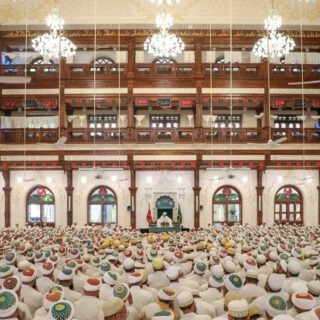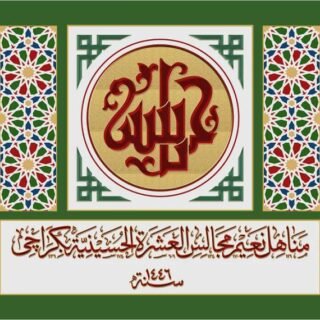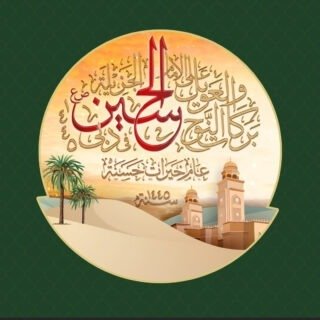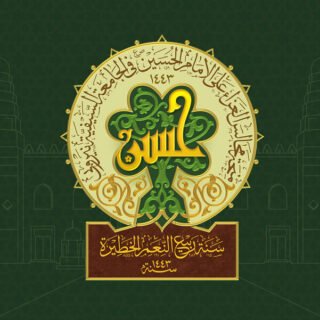While Musa NabiAS was on the mountain of Toor, the disbelievers amongst his tribe took advantage of his absence. An insolent man named Saameree incited the people to melt their jewellery and mould from it a statue of a calf. Ä°t is narrated that he had once seen an angel visiting earth as a messenger. He gathered the soil trodden upon by the angel and whilst molding the calf placed it in the gold due to which the calf kept making a sound.
Concurrently, Allah Ta´ala asked MusaAS about his tribe and the reason why he left them early:
“Why have you hurried on ahead of your people, Musa?” He said, “They are following in my tracks. I have hurried on ahead to you, My Lord, to gain Your pleasure.” (Qur’an, 20: 83-84)
MusaAS was unaware of the acts committed by his people. Allah Ta´ala informed him of the transgression, the existence of a hypocrite amongst them: Saameree and of how he created the statue of a calf.
Allah Ta´ala informed MusaAS: “We tried your people after you left and Saameree has misguided them.” (Qur’an, 20: 85)
Then, taking the tablets, Musa NabiAS returned to his people. Allah Ta´ala thus narrates the incidence:
Musa returned to his people in anger and great sorrow. He said, “My people, did not your Lord make you a handsome promise? Did the fulfillment of his words seem too long to you or did you want to unleash your Lord’s anger upon yourselves, so you broke your promise to me?”
They said, “We did not break our promise to you on our own accord. But we were weighed down with the heavy loads of the people’s jewellery and we threw them in, for that is what Saameree did.”
Then he produced a calf for them, a physical form which made a mooing sound. So they said, “This is your god—and Musa’s god as well, but he forgot.” (Qur’an, 20: 86-88)
In the absence of MusaAS, his wasi HarunAS had warned his tribe that they were swerving from the right path. Nevertheless, the people did not heed his admonition:
Harun had earlier said to them, “My people! It is just a trial for you. Your Lord is the All-Merciful, so follow me and obey my command!”
They said, “We will not stop devoting ourselves to it until Musa returns to us.” (Qur’an, 20: 90-91)
Musa NabiAS was furious with this insolence of the people and demanded an explanation from HarunAS.
He said, “What prevented you following me, Harun, when you saw that they had gone astray? Did you too, then, disobey my command?”
Harun said, “Son of my mother, The people oppressed me and almost killed me. Do not give my enemies cause to gloat over me. Do not include me with the wrongdoing people.”
He (Musa) said, “My Lord, forgive me and my brother and admit us into Your mercy. You are the Most Merciful of the merciful.” (Qur’an, 7: 150-151)
Hearing Harun’sAS reply, Musa AS released him and turned to Saameree, the instigator of the tribe’s transgression and questioned him about his wrongdoing. In an attempt to absolve himself, Saameree explained that he had done what he did for a reason; he claimed to have noticed things others could not. He also added that his inner self had urged him to do what he did.
Musa NabiAS banished Saameree from his tribe and said:
“Go! An outcast shall you be in this life, nor shall you escape your appointed doom. Look at your god to which you devoted so much time. We will burn it up and then scatter it as dust into the sea.” (Qur’an, 20: 95-97)
After destroying the idol, Musa NabiAS preached to his tribe, summoning them to repentance and obedience to Allah Ta´ala.








